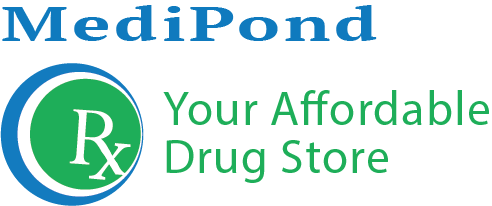metFORMIN HCl 500 MG Oral Tablet
Common Brand Name(s): GLUCOPHAGE
SKU
metFORMIN-HCl-500-MG-Oral-Tablet
Metformin is used with a proper diet and exercise program and possibly with other medications to control high blood sugar. It is used in patients with type 2 diabetes. Controlling high blood sugar helps prevent kidney damage, blindness, nerve problems, loss of limbs, and sexual function problems. Proper control of diabetes may also lessen your risk of a heart attack or stroke. Metformin works by helping to restore your body's proper response to the insulin you naturally produce. It also decreases the amount of sugar that your liver makes and that your stomach/intestines absorb.
Nausea, vomiting, stomach upset, diarrhea, weakness, or a metallic taste in the mouth may occur. If any of these effects persist or worsen, tell your doctor or pharmacist promptly. If stomach symptoms return later (after taking the same dose for several days or weeks), tell your doctor right away. Stomach symptoms that occur after the first days of your treatment may be signs of lactic acidosis. Remember that your doctor has prescribed this medication because he or she has judged that the benefit to you is greater than the risk of side effects. Many people using this medication do not have serious side effects. Metformin does not usually cause low blood sugar (hypoglycemia). Low blood sugar may occur if this drug is prescribed with other diabetes medications. Talk with your doctor or pharmacist about whether the dose of your other diabetes medication(s) needs to be lowered. Symptoms of low blood sugar include sudden sweating, shaking, fast heartbeat, hunger, blurred vision, dizziness, or tingling hands/feet. It is a good habit to carry glucose tablets or gel to treat low blood sugar. If you don't have these reliable forms of glucose, rapidly raise your blood sugar by eating a quick source of sugar such as table sugar, honey, or candy, or drink fruit juice or non-diet soda. Tell your doctor about the reaction right away. Low blood sugar is more likely if you drink large amounts of alcohol, do unusually heavy exercise, or do not consume enough calories from food. To help prevent low blood sugar, eat meals on a regular schedule, and do not skip meals. Check with your doctor or pharmacist to find out what you should do if you miss a meal. Symptoms of high blood sugar (hyperglycemia) include thirst, increased urination, confusion, drowsiness, flushing, rapid breathing, and fruity breath odor. If these symptoms occur, tell your doctor right away. Your doctor may need to adjust your diabetes medication(s). Stop taking this medication and tell your doctor right away if this very serious side effect occurs: lactic acidosis (see Warning section). A very serious allergic reaction to this drug is rare. However, get medical help right away if you notice any of the following symptoms of a serious allergic reaction: rash, itching/swelling (especially of the face/tongue/throat), severe dizziness, trouble breathing. This is not a complete list of possible side effects. If you notice other effects not listed above, contact your doctor or pharmacist. In the US - Call your doctor for medical advice about side effects. You may report side effects to FDA at 1-800-FDA-1088 or at www.fda.gov/medwatch.
Write a Product Review


